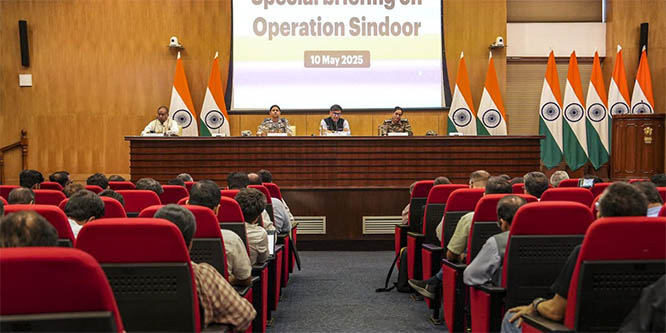
The arrest of a Dubai-based businessman who arrived in Bengaluru to purchase an apartment with the proceeds of a Rs 2.2 crore ‘FedEx fraud’ perpetrated on a 75-year-old coffee planter from Kodagu has resulted in the recovery of as much as Rs 1.7 crore of the stolen funds by the cybercrime unit of the Karnataka Criminal Investigation Department (CID).
This is one of the biggest breakthroughs in the FedEx fraud cases wherein unsuspecting victims are targeted and held “digital hostage” by fake policemen and other law enforcement agencies with claims of the presence of drugs or materials linked to terrorism in courier packages sent in their names.
The breakthrough in the case where the septuagenarian coffee planter was defrauded of Rs 2.2 crore in May happened after the CID cybercrime unit, which was handed the case, began pursuing 26 mule accounts to which the defrauded funds were diverted by scamsters.
The CID police have now arrested five people involved in handling the mule bank accounts to which the stolen funds were transferred initially and are investigating the role of over half a dozen others involved in laundering the funds including through the purchase of a flat and a luxury car.
The key accused in the case has been identified as Yusuf Seth, a former resident of Bengaluru who is now based in Dubai. He was arrested by the CID this month on his arrival from Dubai for allegedly encashing funds stolen from the coffee planter in May.
The accused “committed online fraud and received crores of money from victims by way of digital arrest, by making video calls by wearing the uniforms of customs officers and police officers. They have purchased expensive and luxurious foreign cars and also apartments from the said amount,” the CID informed a local court last week during a bail hearing for a suspect.
In the Kodagu case, the coffee planter received a call on the morning of May 11 this year, wherein a caller claiming to be from the FedEx courier company said that 200 grams of the narcotic MDMA drug had been seized by the police in a parcel sent in the name of the coffee planter. The victim was connected to a person impersonating a police officer by the caller.
The fake crime branch police officer claimed that a case had been registered in connection with the MDMA drug seizure and that the 75-year-old man should prove his innocence by transferring funds from his bank account for verifications.
The victim initially transferred a sum of Rs 1,20,40,000 to a Canara Bank account through RTGS on May 18 and again on May 21 he transferred a sum of Rs 1,01,00,000 to a State Bank of India account. Despite the transfer of Rs 2.21 crore to the callers, the victim continued to receive calls with demands for liquidating his stock holdings, thereby raising his suspicions.
The victim approached the Kodagu CEN (cybercrime, economic offences, narcotics) police and filed a complaint on May 28 and the case was transferred to the CID cybercrime wing on account of the large amount involved.
“During the investigation, it was found that the fraudulent money was transferred to around 26 bank accounts,” the CID said in an official statement on the probe last week.
Based on the information from the money trail for the stolen funds, the CID police arrested four people – Mohammad Shakib, Mohammad Ayan, Ahsan Ansari, and Soloman Raja, who are all residents of Bengaluru who allegedly created some of the fake accounts to which the fraudulent funds were transferred.
Based on the investigation of the people behind the mule accounts in the fraud, the CID police found that a person, Yusuf Seth, who was living in Dubai was behind the operations. The CID police nabbed Seth this month when he allegedly arrived to encash the stolen funds and purchase a flat and a luxury car.
The arrests have led to the recovery of Rs 1,70,00,000 in cash from the accused and $7,700 in US dollar bills, as well as counterfeit money, the CID police said in a statement.
The CID is investigating more suspects from Bengaluru. One suspect, Abdul Rehman Khan, is alleged to have purchased a Mercedes Benz worth Rs 40 lakh with the stolen funds on behalf of Seth. Two others, Saibanuddin and Navid Jan, are alleged to have also aided the gang.
The CID told a local court during an anticipatory bail hearing for Rehman Khan that he purchased a Mercedes Benz with Rs 40 lakh linked to the defrauded funds he received through the hawala route. The court rejected the anticipatory bail plea on August 17.
The gang involved in the FedEx fraud on the Kodagu coffee planter has been found to be linked to as many as 15 other similar cases around India, the police said.
While the number of FedEx frauds – which were rampant in Karnataka in 2023 – reduced to a large extent this year, they still continue to exist with elderly unsuspecting victims falling prey, a Bengaluru police official said.
Previous cases
In one of the first instances of arrests in the rampant scam, the Bengaluru police in December 2023 arrested eight people for cheating Rs 1.08 crore from a retired man.
The police investigations revealed that nearly Rs 9.34 lakh of the stolen Rs 1.08 crore was transferred to an RBL bank account and withdrawn in Davangere in central Karnataka. The police examined the CCTV footage at the bank to determine the identities of the suspects who had physically withdrawn a portion of the money.
Based on information from the leads in Davangere, the Bengaluru North Cen police arrested eight people and seized Rs 13.17 lakh of cash in their possession. About Rs 19 lakh in various accounts linked to the accused were also frozen. The gang was found to be using 11 mobile phones and as many as 148 bank accounts for their activities.
“The arrests were possible because the accounts where some of the funds from the crime were transferred were in Karnataka and this facilitated investigation of the persons who withdrew the money in cash,” a senior Bengaluru police officer said.
The police investigations have revealed that the arrested persons in Bengaluru and Davangere were recruited through an online Telegram group to create bank accounts for receiving the funds stolen from victims in the courier scam.
They were also tasked with withdrawing the stolen funds from accounts under their control and converting them into cryptocurrency for payments in Dubai.
The bank account operators were paid commissions on the amounts of stolen money they helped launder, the police said.
Official Statement:
FedEx does not request personal information through unsolicited phone calls, mail, or email for goods being shipped or held, unless requested or initiated by customers. If any individual receives any suspicious phone calls or messages, they are advised not to provide their personal information. Instead, they should immediately contact the local law enforcement authorities within the vicinity or report to the cybercrime department of the government of India.







Comments
Add new comment